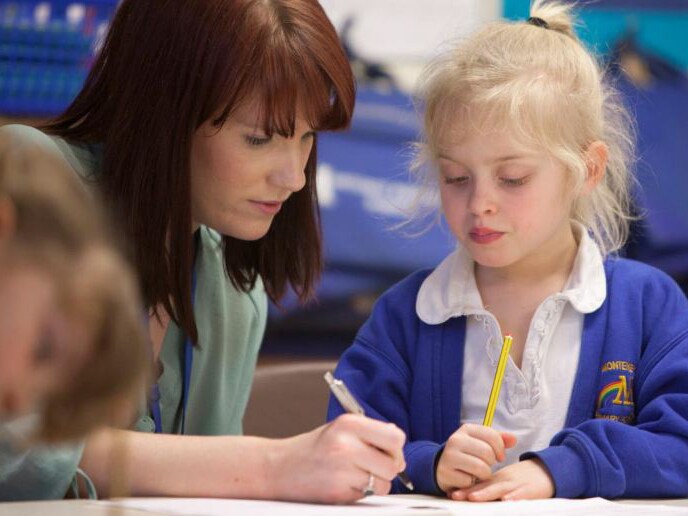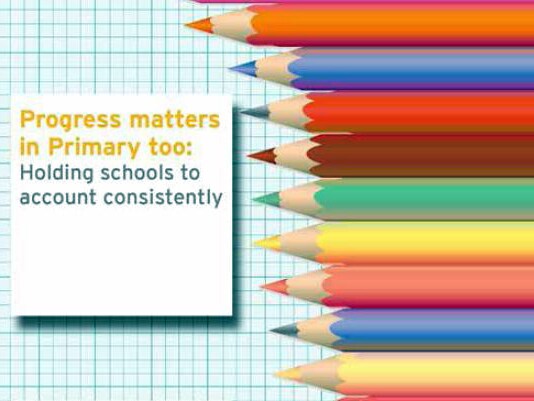
#LearningFirst: Supporting ‘Beginning Teachers’ in Being ‘Assessment Capable’
On Saturday 21 May, a group of us from Pearson went along to the first #LearningFirst event hosted by the @BeyondLevels team organised by Dame Alison Peacock.
On Saturday 21 May, a group of us from Pearson went along to the first #LearningFirst event hosted by the @BeyondLevels team organised by Dame Alison Peacock.
If you haven’t got Science Bug (or even if you have!) and are coming to the annual ASE conference, this year at the University of Birmingham, then come along and meet Deborah Herridge on the afternoon of Friday 8th January.
The concept of a growth mindset is not a new one, especially if you are familiar with the work of psychologist Carol Dweck.
Ever since the government announced the disbanding of National Curriculum levels, schools have been asking for support on what the government and Ofsted expect to see from a school assessment system.
Remember Pavlov? He’s the guy who conditioned dogs to respond with a saliva reflex to the sound of bell.
At first, the dogs would be given a nice juicy piece of meat each time the bell rang, until eventually, the neural pathway was strong enough that the dogs would salivate at the idea of being fed even when the piece of meat was then withheld.
Obviously, as humans we’re a bit brighter than your average dog. But that doesn’t mean we don’t respond to conditioning – particularly when fear is involved. For many years now you’ve been expected, as teachers, to take a data-led approach to assessment. To give each child a number and to measure their progress as their evolution between these numbers.
A failure to keep track of, and to report on children’s attainment using these numbers would result in a less-than-glowing appraisal of your school’s performance from Ofsted.
So, while the DfE has long been clear that Levels are finished and that schools are free to develop their own systems of assessment and reporting, so strong is the conditioning that many schools have had difficulty believing in this freedom and letting go of the old regime.
Even those wanting to engage found themselves in a vacuum of information and direction. For pressured Heads and senior leaders with a mountain of things on their plate already, the whole area of assessment must have seemed like a ticking time-bomb that they didn’t have the manual or the time to defuse.
The Commission on Assessment without Levels was therefore set up to provide guidance to schools on creating their own assessment policies, and to help them through a time of ‘radical cultural and pedagogical change’ (to borrow from John McIntosh’s foreward to the commission’s final report).
What it does do, is provide a manifesto for high-quality, meaningful assessment that offers guidance to schools to help them develop their own policies.
However, if any schools were hoping for an off-the-peg solution to assessment or a replacement set of levels fitted to the new curriculum, the commission’s final report does not deliver.
It provides no templates, and prescribes no specific content for a school’s assessment policy. What it does do, is provide a manifesto for high-quality, meaningful assessment that offers guidance to schools to help them develop their own policies.
The detail is of course available within the report itself, but the overall message is that formative assessment is crucial; that acting upon assessment is far more important than recording it, and that schools ought not to be driven by expectations of what they think Ofsted inspectors are looking for. (The latest Common Inspection Framework plainly states that they are not looking for a particular approach).
The report also identifies what needs to happen in order for schools to feel completely comfortable and secure about their assessment policies. To be able, in short, to let go of the old way of thinking without fear of reprisal.
This includes a greater focus on assessment as part of initial teacher training, training for school leaders and Ofsted inspectors around the principles and purposes of assessment, and what best-practice looks like.
Does this mean the demise of summative assessment? Not at all. The report recognises that summative tests are a useful means of evaluation pupils’ learning and progress at the end of a period of teaching.
It’s important, however, that the data is not an end in itself, but is a way of a way of getting information that supports pupils' progress and attainment to help you tailor your teaching accordingly.
It follows therefore, that when you’re creating, or looking for ready-made summative assessment resources, you need to think about how they help you to close that loop.
What do you do now? Well, whatever it takes to get rid of that old conditioning. Grasp this opportunity for what it is – a government sanctioned move towards a more innovative, child-focused, sensible approach to assessment.
Read the report, if you haven’t already, and get excited. And most of all, believe. Believe that you know what good assessment looks like, and believe that the DfE trusts you to make it happen.
The updated Ofsted Common Inspection Framework (CIF) was launched on 11 June for inspections from September 2015. Until the end of the current term schools will be inspected under the 2012 framework (last updated in January 2015).
The new CIF is designed to pull together the inspection of the different education settings (early years setting, maintained schools and academies, non-association independent schools and further education and skills providers) ‘to provide greater coherence across different providers that cater for similar age ranges’.
Between the framework, the Inspectors' handbook, and a plethora of supporting material to assist schools with its roll-out and assimilation, there is quite a lot to wade through, so here is a quick summary of the most important points:
Safeguarding is now reported under Leadership and Management. There will also be a greater emphasis on the notion of ‘British values’ (already included in the January edition) which include ‘tolerance’ and ‘respect’.
The personal development section also includes a reference to extremism – ‘understand how to keep themselves safe from relevant risks such as exploitation or extremism, including when using the internet’.
Short inspections for schools judged as being ‘good’ in their last inspection are being introduced. These new shorter inspections will start from the assumption that the school is still good, with an emphasis on leadership.
The onus is therefore on the leaders to provide sufficient evidence to HMI that this is the case, with a full inspection to follow only if HMI do not see enough during the short visit to be convinced.
The launch of the new CIF was heralded by a speech delivered by Sir Michael Wilshaw to Westminister outlining the principles of the document and talking about the future of education inspection.
In it, he outlined a number of key focus areas that inspectors would be looking at. In his own words, these are:
Alongside the inspection handbook/document is an additional paper clarifying the facts about Ofsted inspections and attempting to dispel the ‘myths’ surrounding inspection preparation, a key source of stress for teachers and school leaders. Ofsted does not:
This guidance has been well received by teachers and teaching unions. as evidence that Ofsted is recognising - and seeking to address - both the mental toll and the considerable demands on teachers' time that inspection has been taking in recent years.
From September 2015 schools are required to show how they are managing and measuring attainment and progress now that they are no longer using levels to measure attainment.
Inspectors will consider how well teachers use any assessment for establishing pupils’ starting points, teacher assessment and testing to modify teaching so that pupils achieve their potential by the end of a year or key stage. However, Ofsted does not expect to see any particular system of assessment in place.
Evidence of in-year progress and attainment information should be provided to inspectors in the format that the school would ordinarily use to track and monitor the progress of pupils in the school.
Reference is made many times in the document to 'Schools' own Assessment Policies'. As part of the good practice in school policy update and review, schools are well-advised to have their assessment, marking and feedback policies updated and in place by the start of the Autumn term.
Find out more how Pearson can support you with assessment with our new service Progress & Assess.
Image credit: Robert Kneschke. Shutterstock
Regular readers of this blog will know that we have long argued that the fairest and most effective way to judge schools is by the progress their pupils make.
We’re delighted, then, to have launched a new report, together with the CentreForum think tank, on this issue: Progress matters in Primary too: Holding schools to account consistently.
Following on from an earlier report on secondary school accountability, the report argues that pupil progress, rather than attainment, should be the principal floor target for primary schools, for the following reasons:
The report also addresses the thorny issue of baseline assessment, arguing that an effective baseline assessment, administered to pupils in their first half-term of Reception, is fundamental to creating a progress measure. It acknowledges that there are valid concerns around the introduction of a baseline assessment, but believes that these can be overcome.
The report ends with two recommendations:
We hope that this report will prove useful in this highly-charged debate. Do let us know what you think.





